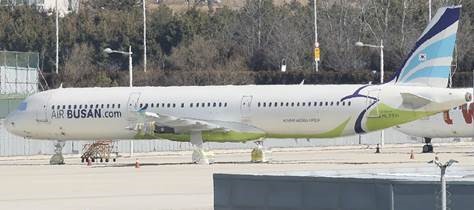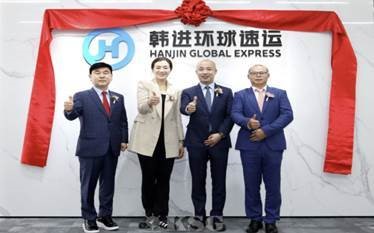旭辉空运国际 - 第37周24年航空业更新
航空货运 General
1) 韩亚航空 - 通过扩大美洲和欧洲航线来最大化长途航线收益

-
韩国航空决定在今年剩余时间内扩大其长途航线,以确保盈利。由于长途航线的贡献,客运业务在今年第二季度表现强劲,航空公司计划积极探索新的航线,除了现有航线外。
-
特别是北美航线的运输表现,其中需求集中在美国东海岸和加拿大,较去年增长了15%,较2019年增长了7%。随着旅游旺季的到来,围绕旅游目的地的欧洲航线也因来自韩国的强劲需求,较去年运输表现增长了18%。
-
前往北美等长途航线以高票价著称,韩国航空计划积极扩大长途航线的供给,以确保未来的盈利。
-
从下个月11日起,航空公司计划每周运营三次从仁川到葡萄牙里斯本的包机。此外,仁川至多伦多的航线将从每周七次增加到八次,仁川至温哥华的航线也将从每周七次扩大到十次。此外,还计划开发包括挪威奥斯陆、德国慕尼黑和希腊雅典等欧洲旅游航线的包机。
-
韩国航空的一位官员表示:“我们将通过扩大长途航线和在需求集中期间增加包机,推动旺季利润的最大化。
2) T'way航空 - 正在经历成长的痛苦,但对下半年的反转充满信心

-
T'way航空在今年第二季度录得215亿韩元的营业亏损,由于飞机引进延迟和新航线取消,面临困难。公司计划在下半年集中于前往欧洲的长途航线,以寻求扭转局面。
-
在第二季度,T'way航空报告营业亏损215亿韩元,与去年同期相比出现亏损。持续的高汇率和高油价对其业绩产生了影响。
-
与去年相比,燃油价格上涨了7.3%,而韩元对美元的平均汇率则下降了4.2%。
-
T'way航空未能避免上半年业绩不佳,这与去年创下的历史最高业绩形成了鲜明对比。更糟的是,新开通的欧洲航线的客运航班出现延误和取消,导致争议。
-
该航空公司计划集中精力准备下半年预定的欧洲航线,希望能够扭转局面。欧洲航线的准备工作进展顺利,从韩亚航空借来的五架A330-200飞机的转让按计划进行,其中三架已经转让,剩余的两架预计将在11月之前接收。公司表示,租赁可运营的客机并派遣飞行机组人员将有助于顺利开展航班运营。
-
继新开通的法国巴黎航线后,T'way航空计划在9月开通前往西班牙巴塞罗那的新航班,并在10月开通前往德国法兰克福的航班。T'way航空开通的欧洲航线是受欢迎的目的地,常被称为“优质航线”,预计将有显著的客运需求。
-
预计这些欧洲航线带来的收入收益将达到每年500亿韩元,这被视为追赶领先的低成本航空公司济州航空的潜在动力。
-
阿周大学的李钟宇教授表示:“运营这些欧洲航线可能成为超越低成本航空公司固有局限性的一个因素。虽然初期启动有些不顺利,但作为唯一一家运营高价值航线的低成本航空公司,这具有重要意义。目前的内外部挑战应被视为成长的痛苦。”
3) 不同的视角 - 难以分拆出售的亚航,然而欧盟表示'审查重点在欧洲'

-
欧洲联盟(EU)正逐渐与围绕釜山低成本航空公司(LCC)亚航的分拆出售争议保持距离。与韩亚航空和大韩航空合并相关的实质性审查重点在于欧洲境内的活动。政府声称亚航的分拆出售可能导致外国当局重新评估合并的说法失去了说服力,显示出潜在的方向性问题。
-
欧洲委员会竞争总署发言人莉亚·朱伯(Leah Juber)表示:“正如在合并通知时所宣布的,大韩航空已通知委员会,它将对整个亚航获得单独控制权。这包括亚航的所有运营。”她补充说:“委员会根据欧盟合并控制法的实质性审查集中在大韩航空和亚航在欧洲经济区(EEA)内的活动。”
-
这是欧盟竞争机构首次就亚航分拆出售的争议表态。
-
这一问题出现在大韩航空与亚航宣布合并后,韩进集团主席赵源泰(Cho Won-tae)在2022年表示:“整合后的LCC将以Jin Air品牌运营,并将以仁川国际机场为基地。”该计划涉及将亚航的子公司亚航和首尔航空与大韩航空的LCC子公司Jin Air合并。
-
希望将整合后的LCC总部吸引到釜山的地方社区对赵主席的计划表示强烈反对,继续主张将亚航单独出售给第三方,而不是大韩航空。
-
亚航在合并后将成为子公司的未来由其母公司大韩航空决定,而失去基地航空公司的地方社区的反弹是不可避免的。然而,有批评指出,介入调解的政府以模糊的回应加剧了反弹。
4) 韩进与中国艾沃特(AWOT)合作 - 成立‘电子商务专业’合资公司

- 韩进与中国物流企业艾沃特全球公司(AWOT)合作,成立合资公司,加快电子商务(e-commerce)物流扩展。计划结合双方的运输经验和网络,以亚洲为基础扩大全球业务。
- 韩进于5日在中国深圳与艾沃特共同启动“韩进全球快递深圳有限公司”。合资公司的股权结构为:韩进占35%,艾沃特占65%。股权比例更高的艾沃特任命德里克·王(Derek Wang)为首席执行官。
- 此次与韩进合作的艾沃特是一家总部位于中国广州、在海外运营50个全球分支的中国和亚洲专业物流公司,年收入规模达5万亿韩元。
- 来源于中国的电子商务市场在过去5年中以年均23%的速度快速增长,物流需求也在多样化增加。双方为在该市场创造积极的协同效应,去年11月签署了“相互物流业务激活”合作协议,并在10个月内成立了合资公司。
- 韩进全球快递计划专注于电子商务货物,吸引来自中国的特快货物并运营履行业务。同时,艾沃特将负责运输到韩国和日本,而韩进将在韩国和日本内进行清关和运输。双方还计划未来扩展服务,涵盖东南亚和美洲的货量。
- 两家公司将逐步开发和推进来自中国的各国电子商务业务,积极吸引中国大型零售企业的货量,并利用韩进的仁川机场GDC和海外特快清关设施以及日本子公司进行清关和运输业务。此外,双方还计划将履行、航空运输、清关和运输过程逐步联动,为电子商务客户建立综合运输服务。
- 韩进相关人士表示:“我们将利用双方丰富的网络和基础设施,创造与快速增长的中国电子商务货量相关的多种商业机会。
5) 航空公司/GSA 动态
- MSC空运:从9月24日起,每周一次的货运航班从仁川(ICN)到新加坡(SIN)
- 5J:ICN到马尼拉(MNL)的服务连接至悉尼(SYD)/墨尔本(MEL)的完整服务。
- T'way航空将在11月21日每天两次从仁川飞往新加坡。
- 亚航将于10月30日开通釜山至巴厘岛的新航线……从下个月30日起,每周四次。
- 新西兰航空将于10月28日恢复仁川至奥克兰的直飞航班。
- OZ:10月29日起,每周两次从仁川(ICN)飞往开罗(CAI)的直飞航班。"**

top



